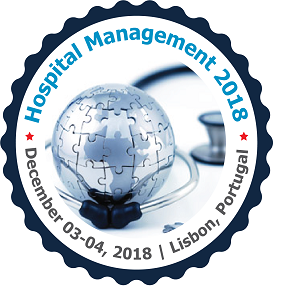
Catia Sofi a Gabriel Caneiras
University of Lisbon, Portugal
Title: Hospital-acquired infections by carbapenem-resistant Gram-negative bacteria: An old hospital management challenge in a new technology era
Biography
Biography: Catia Sofi a Gabriel Caneiras
Abstract
The acquisition and emergence of carbapenem resistance among Gram-negative bacteria (GNB) is a major cause of concern, since carbapenems currently represent the treatment of choice for severe infections caused by multidrug-resistant (MDR) strains producing extended-spectrum
β-lactamases (ESBL). In 2017, the World Health Organization had published a global priority pathogens list of antibiotic-resistant bacteria to help in prioritizing the research and development of new and effective antibiotic treatments. In this list, it identifi ed carbapenem-resistant Enterobacteriaceae (which includes Klebsiella pneumoniae and Escherichia coli), Pseudomonas
aeruginosa and Acinetobacter baumannii, as the top three critical threats. Although great efforts have been made to enhance epidemiological surveillance in Europe, virulence traits and molecular characterization of carbapenem-resistant isolates from some countries remains scarce. Additionally, it remains somewhat unclear how pathogenic bacteria, its resistance and virulence, have evolved in over the time and its relationship with the healthcare system changes imposed by medical technologies. All combined, this thematic can constitute an important threat to safety patients, a
signifi cative economic burden and a serious challenge to hospital management.

